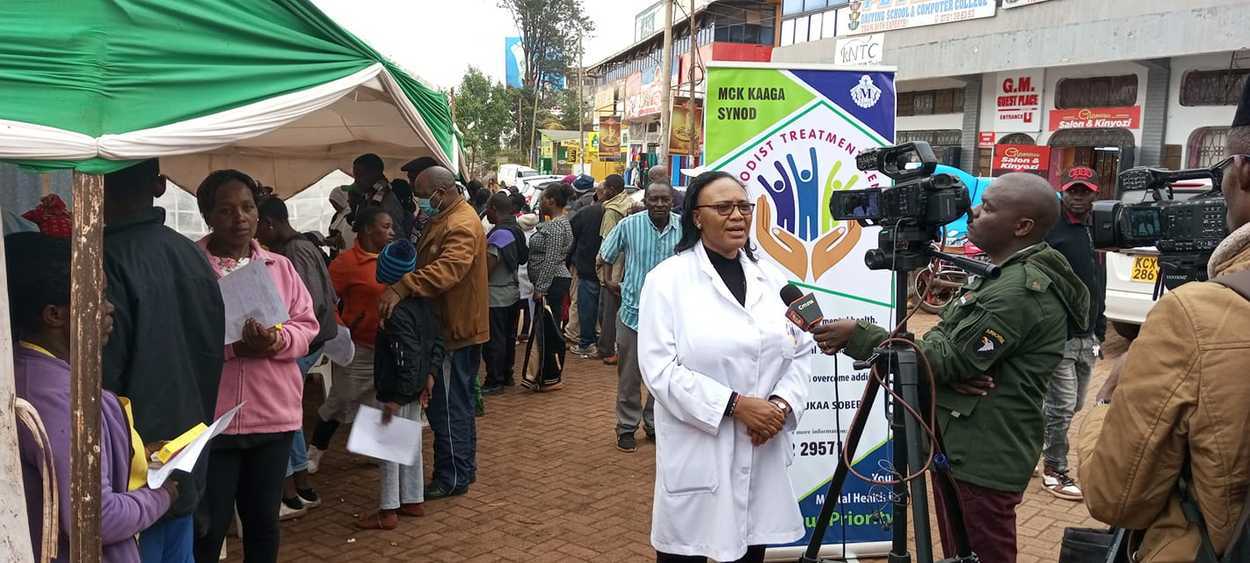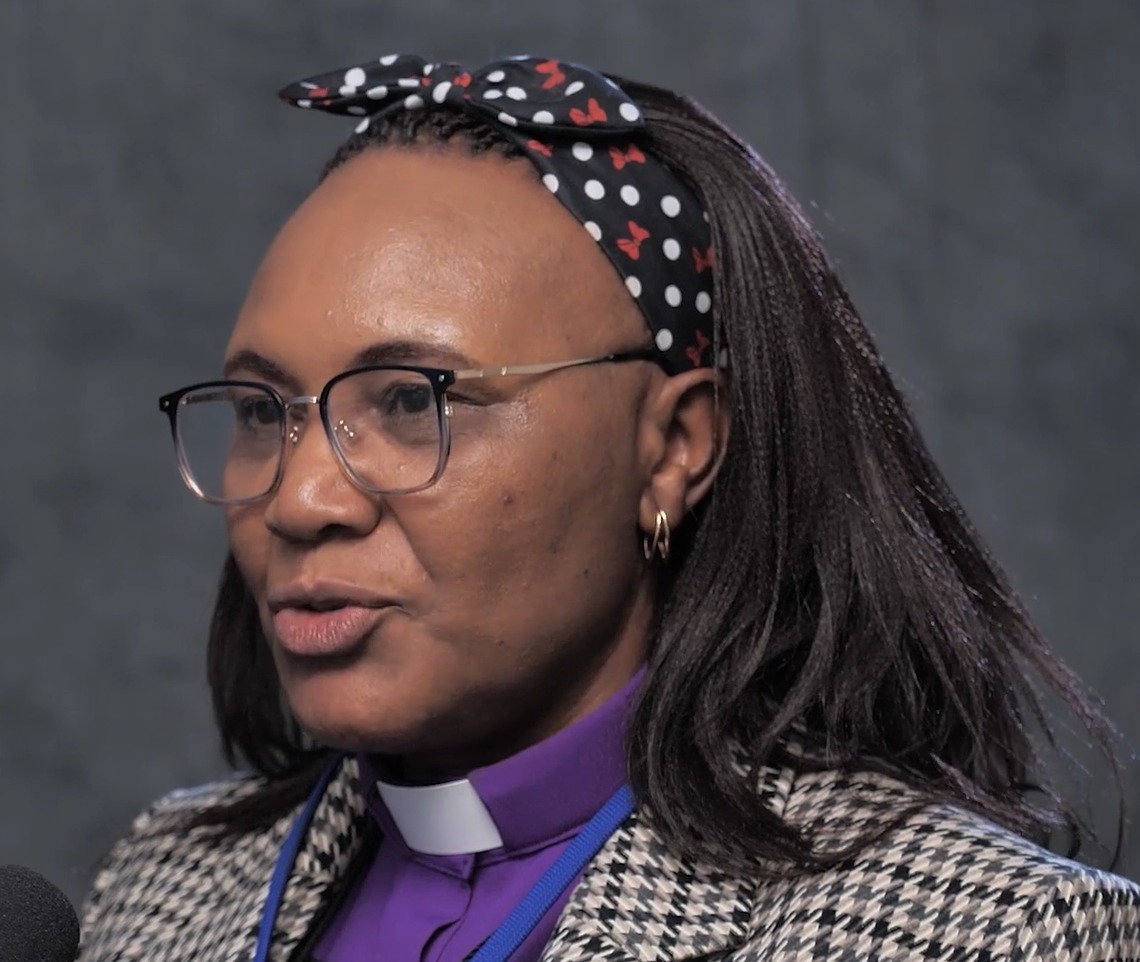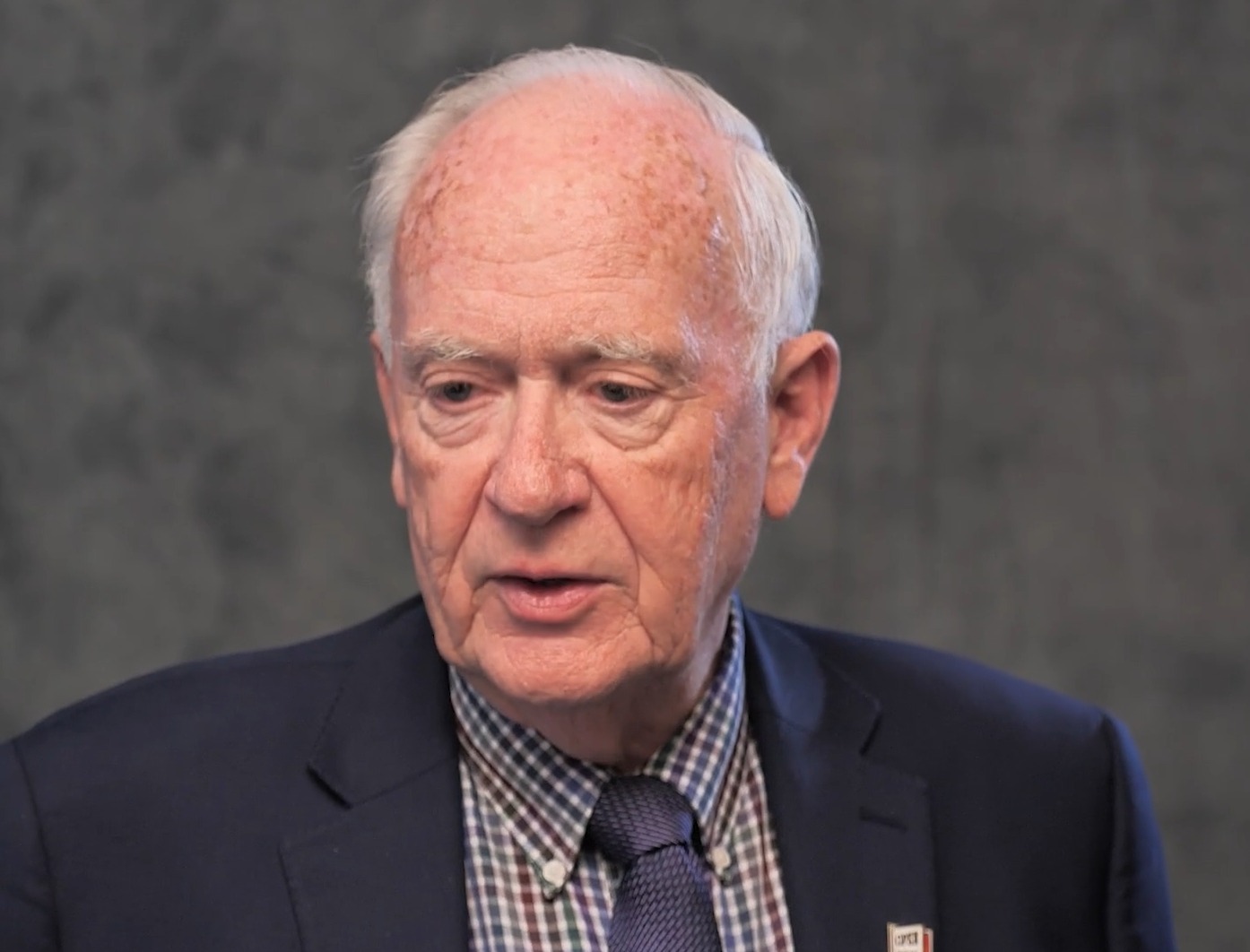
Bishop Catherine Mutua: Shining light and hope in Kenya

Bishop Catherine Mutua talks with reporters at the opening of a treatment and rehabilitation center. Photo from Facebook.
In 2013, Rev. Catherine Mutua was the first woman elected bishop of the Kaaga Synod of the Methodist Church of Kenya. The morning after her election, she headed to the office and stopped her car for a small boy loitering in the street.
“I asked him if I could buy him a cup of tea,” said Bishop Matua. He asked me to follow him. I followed him through very dark corners, a dangerous place. He took me to a huge garbage dump. The boy showed me where other boys were lying. It was their bedroom. He would walk to one area and then another and wake someone up. They were covered in garbage to keep warm as they slept.”

Bishop Catherine Mutua. Photo is a screen capture from a video.
In a few minutes, 75 children were awake and looking at Bishop Matua. She was still determining her next steps.
“They were agitated. They were disappointed that somebody was disturbing their sleep,” shared Rev. Matua
Trust was an issue. People would take advantage of these boys. They would take pictures of them and use the images to raise money. Money that did not go to the boys. Bishop Catherine knew she had to gain their trust. The boys thought she was one of those people who would exploit them and take advantage of their problems.
“The Lord gave me wisdom. I told them I would buy them tea. I went to a nearby kiosk and asked owners to give the boys tea and donuts and to send the bill to me,” Bishop Matua shared.
After the boys ate, they relaxed, and they began to have a conversation. They told Bishop Catherine that people call them mean names like pickpockets, garbage children, and criminals. They described themselves as disadvantaged and unfortunate children. Their parents had thrown them out because their mothers were victims of rape. Some parents had died from HIV and AIDS. Despite these challenges, the boys showed resilience and a willingness to change their circumstances.
“They have lost their sense of being. At that moment, I knew we must start a program to help them and give them pride in their self-identity,” said Bishop Catherine.
A team now provides food, hygiene items, a place for them to clean up, milk, and bread to take home. From there, a rehabilitation center was established. Through donations, the children on the street can participate in the rehabilitation program.

Rev. Dr. Don Messer. Photo is a screen capture from video.
Reverend Dr. Don Messer is a champion for people who are dealing with HIV and AIDS. Messer is the founder and executive director of the Center for Health and Hope and the author of several books. He assists people like Rev. Catherine Mutua.
“I have worked with Don and the team from the Center for Health and Hope for many years. They have helped to transform human beings. They have supported more than a thousand children who are HIV-vulnerable children whose parents died of either HIV or AIDS,” said Bishop Mutua. “We are so grateful to the Center for Health and Hope.”
The Center for Health and Hope’s purpose is to support and advocate for persons infected and affected by HIV and AIDS throughout the world through programs of education, prevention, care, and treatment. Your support can make a significant difference in the lives of these children. Learn more about the Center for Health and Hope and how you can contribute to their cause.
Read about the United Methodist Global AIDS Committee.
Watch a video interview with Rev. Dr. Don Messer and Bishop Catherine Mutua.

